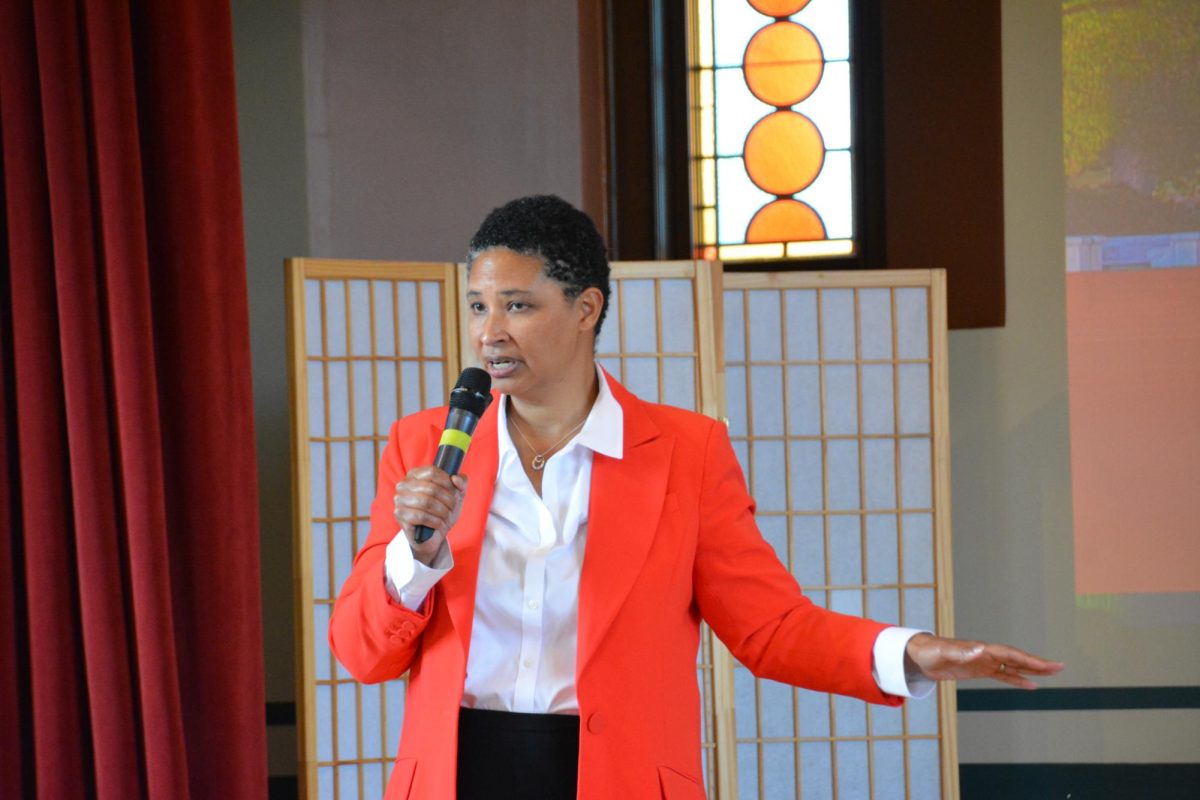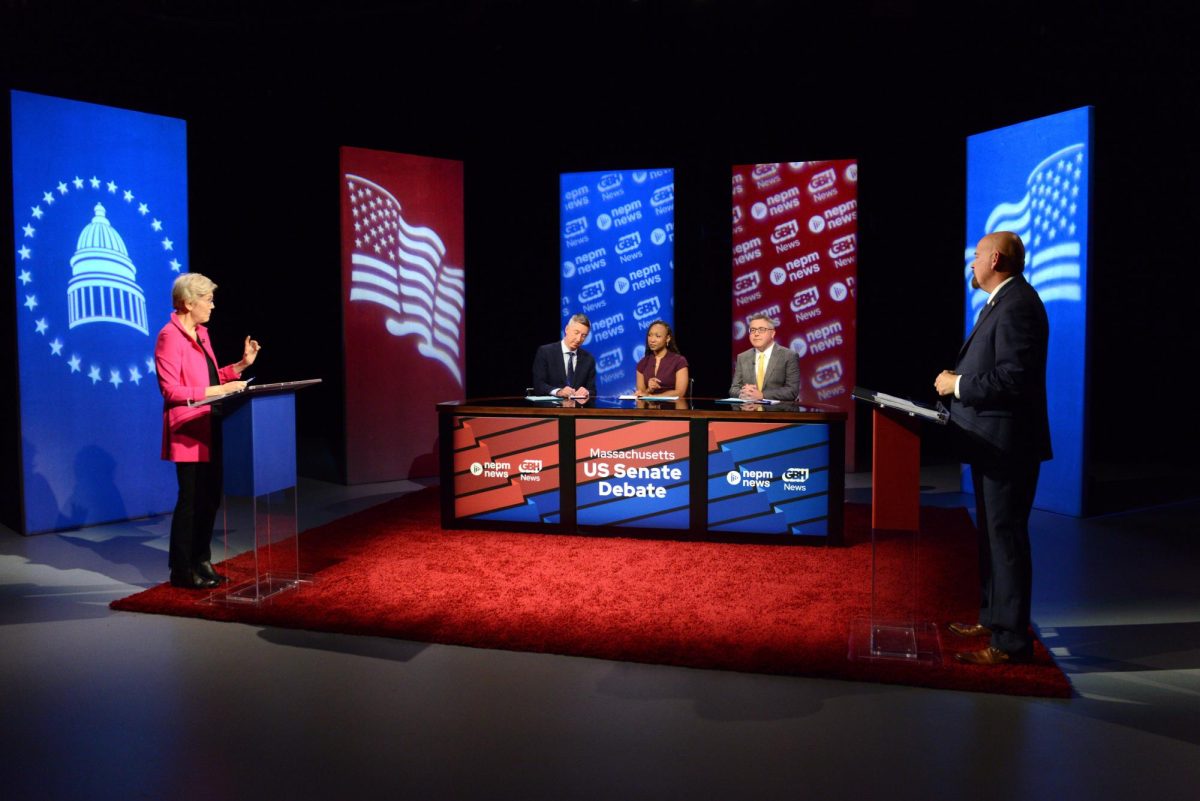While the Massachusetts Republican primary was a landslide victory for former Gov. Mitt Romney, another race is heating up and leading thousands of Bay Staters to vote early with their pocketbooks.

Ted Kennedy’s former senate seat, scored in an upset win by Sen. Scott Brown (R–Mass.) in a 2010 special election following Kennedy’s death, is being contested in the 2012 election cycle by Democratic consumer protection advocate and Harvard law professor Elizabeth Warren.
Brown and Warren sit on different sides of the partisan aisle, but on at least one point their campaigns are in agreement – the importance of fundraising in what is likely to be a hotly contested race.
According to the Center for Responsive Politics (CRP), Brown currently holds the financial edge with $12,892,256 cash-on-hand as of Dec. 2011 compared to Warren’s $6,141,942. Warren, however, outraised Brown $5.7 million to $3.2 million in the last quarter of 2011, according to the Boston Globe.
Combined, their campaigns have enough money to pay the tuition and fees of over 1,500 in-state University of Massachusetts students. The Associated Press writes that the race could end up being the most expensive Senate contest in Massachusetts history, and it is currently the most expensive Senate race in the country, according to the CRP.
Warren has come under fire from Brown for her reliance on out-of-state funds. According to the Globe, over 60 percent of her itemized donations have come from out of state, compared to one third for Brown. Brown’s campaign sent an email to supporters Tuesday attacking Warren for “jetting off to Hollywood” to seek contributions from celebrities.
Brown’s 2010 campaign, however, also received 60 percent of its donations from out-of-state sources, according to the CRP.
Senate candidates typically raise millions of dollars to fund their campaigns and execute media buys with incumbents mainly drawing from the Political Action Committees (PACs) of various interest groups and challengers relying on individual donations, according to UMass political scientist Ray La Raja.
“When you run for Senate, it requires a lot of money. And sometimes candidates can’t get all this money from one state,” said La Raja. “[Out-of-state fundraising] has increased in part because of internet but, more importantly, the parties are … so polarized, people [across the U.S.] are concerned about who controls Congress.”
According to La Raja, Democrats are on the defensive in several races across the country, with the retirement of veteran Sens. Jim Webb and Kent Conrad opening up the elections to serious Republican competition. This poses a challenge to Warren, who will be forced to prove her viability as a candidate in order to attract continued donations.
“She’s got to keep within striking distance or her funding will dry up,” said La Raja. “One of the rules of politics – you need to respond to attacks. If it’s a one-sided spending race, that’s when having campaign money matters. That said, having $6 million is still pretty good. Spending $12 million isn’t going to pick up too many votes – It’s [the] first $6 million that counts … you’re already saturating voters.”
Brown holds an advantage in recent polling, with a Feb. 19 Rasmussen poll finding him in a 49 percent to 45 percent lead over Warren and a recent Western New England University poll turning up an eight-point gap in his favor. However, neither candidate cracked the 50 percent mark in either poll due to significant numbers of undecided voters.
Warren and Brown campaign contributors come from different professional backgrounds, according to the CRP. Warren’s largest donor groups are academics, attorneys, union PACS and liberal activist groups like Emily’s List and Moveon.org. She has also raised funds from Hollywood filmmakers and employees of financial companies.
Brown strongest funding base is employees of financial institutions. Brown is also out-raising Warren among PAC donations, with over $1,100,000 to Warren’s $142,486, according to the CRP.
Local donations have trended heavily Democratic, with Warren enjoying a heavy advantage in the Pioneer Valley, according to an info graphic by the Boston Globe. Though South Hadley donors have supported Brown, Amherst and Northampton have been much more financially active in the race and have overwhelmingly supported Warren.
Amherst has swung towards Warren, with $15,313 donated to her campaign and only $600 going to Brown, according to the Globe. Warren has picked up many donations in Boston as well, but the majority of the city’s $228,896 went to Brown with $172,776 going to Warren. She picked up her home area of Cambridge, home of Harvard, with $178,448, to Brown’s $31,975. Northampton, a liberal stronghold, gave Warren $38,160 and one donation of $100 made it through to Brown.
The University Democrats, which operates locally on campus, has been “working closely” with the Warren campaign, according to the group’s President Matt Bonaccorsi. They have been in involved in fundraising, canvassing, working at phone banks and tabling at the campus center, trying to educate voters on Warren’s message and get people to vote.
The UMass Republican Club did not respond to a request for comment in time for publication.
A major issue in races across the country is the prevalence of outside spending in the wake of the Supreme Court’s Citizens United decision, which legalized under the First Amendment corporate donations to PACs which can then run ads attacking or supporting candidates.
Brown and Warren, however, agreed in January to prohibit outside spending on behalf of their campaigns and donate half the cost of any such spending to charity. According to CBS, Brown recently agreed to pay the fine after a Mitt Romney-affiliated PAC placed online ads supporting Brown.
Dan Glaun can be reached at [email protected]. Claire Anderson can be reached at [email protected].












